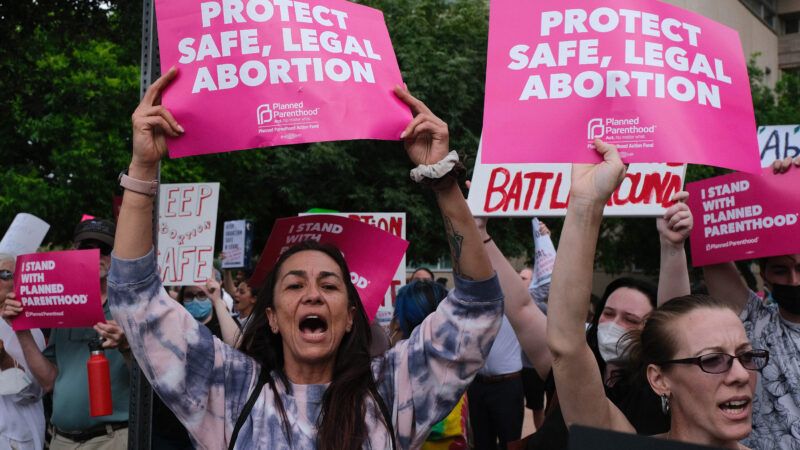In Kentucky, Legal Abortion Is on the Ballot
Voters will soon cast ballots on a constitutional amendment that seeks to explicitly remove any protections for abortion in the state's constitution.

A constitutional amendment on the ballot in Kentucky will likely decide whether abortion will be legal in the state.
The proposed amendment would officially clarify that Kentucky's constitution does not protect the right to abortion—skirting privacy and bodily autonomy protections in the state's constitution. Whether it succeeds is likely to affect the outcome of a current legal battle in the state's Supreme Court, where justices are reviewing the state's 2019 trigger law. In a struggle closely mirroring Kansas' August ballot measure, abortions will likely permanently cease in the state if the amendment passes.
Following the release of the Dobbs v. Jackson decision in June, Kentucky enacted its 2019 abortion trigger law, which banned all abortions not performed to save a woman's life or prevent a disabling injury. The state also passed a six-week ban on abortion in 2019. Following legal challenges from the state's two abortion clinics, Kentucky's Supreme Court decided that the law could stay in effect until the court could rule on the ban's constitutionality. The state Supreme Court will begin hearing arguments in the matter in November—after the midterm election. While the law is under review, most abortions remain halted in the state.
According to the ACLU, Kentucky has a constitutional provision protecting "privacy, bodily autonomy, and self-determination," thus making a ban on abortion difficult to justify. However, if Amendment 2 receives voter support, this constitutional barrier to the state's abortion ban will be removed. The Amendment reads "To protect human life, nothing in this Constitution shall be construed to secure or protect a right to abortion or require the funding of abortion."
As midterm voting draws near, both pro-life and pro-choice campaigners have ramped up their efforts to sway voters.
Pro-life legislators in particular emphasized that if passed, the amendment itself would not render abortion illegal. "The amendment does not allow abortion or does not outlaw abortions. It does not outlaw abortions in all cases. Under current Kentucky law, abortion is legal if necessary to preserve the life or health of a pregnant woman," Rep. Nancy Tate (R–Brandenburg) told media last Thursday. She continued, arguing that the amendment would "keep state judges in their lane of interpreting the law and not inventing new laws and new rights that the constitution does not speak of."
However, to pro-choice advocates, if the measure fails, "it would really drive home the narrative that abortion is a winning issue," Tamarra Weider, the state's director of Planned Parenthood Alliance Advocates told The 19th. "We have a real opportunity to change what, nationally, people think about Kentucky. And hopefully, they'll reconsider not only abortion rights in Kentucky but look across at those other red states that people don't invest in."
While the recent victory for pro-choice advocates in Kansas—which decisively voted down a measure that would remove constitutional protections for bodily autonomy in the state—is energizing pro-choice Kentuckians, it is difficult to predict the outcome of the contentious vote. Regardless, how Kentuckians vote on the proposed amendment is likely to determine whether abortion will remain illegal in the state.



Show Comments (35)